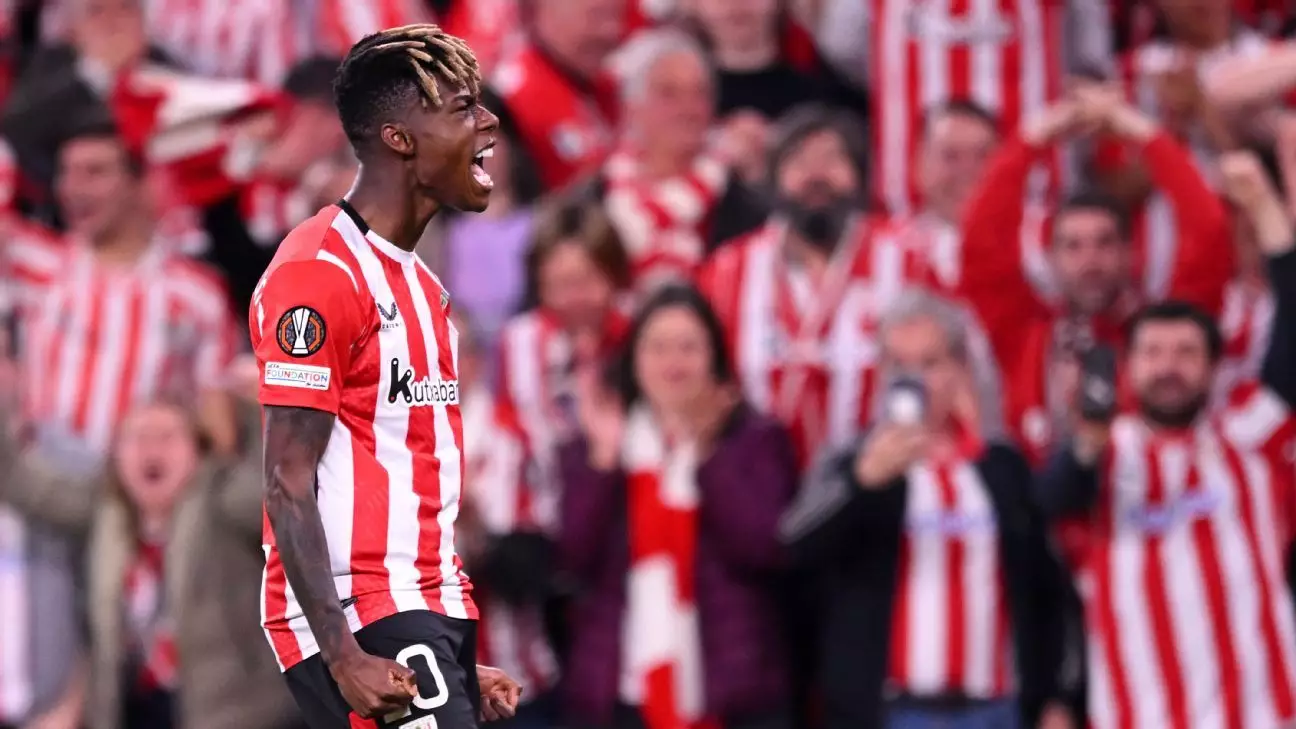The saga of Athletic Club is one steeped in passion and grounding tradition, a narrative that found its most recent zenith in a jubilant Copa del Rey victory after a four-decade drought. However, this triumph did not come without its consequences. Following their monumental win, the players and fans indulged in an exuberant riverside celebration aboard the Gabarra, a boat that became an emblem of triumph rather than just a mode of transport. The spectacle of a million supporters lining the banks of the Nervión river was not merely about celebrating a trophy; it was about affirming a collective identity tightly woven with the fabric of Basque culture.
But amidst the jubilant toasts and euphoric shouts reverberating off the riverbanks, a darker undertone was developing—Athletic’s celebratory revelry proved detrimental to their performance in subsequent matches. The hangover proved to be more than just a physical ailment; it symbolized the weight of expectations they now bore. A crucial match against Villarreal, which followed shortly after their raucous celebrations, showcased both their resilience and their vulnerability. Athletic led the game until the dying moments, only to rue a last-minute penalty that snatched victory from their grasp. Such squandered opportunities turned into a painful reminder—victory demands not just talent but also discipline, particularly in a grueling league where every point matters.
A Self-Imposed Mandate: The Basque Ethic in Football
What sets Athletic Club apart is their unwavering commitment to fielding players born or developed in the Basque region. This policy is not merely a choice but a deep-seated cultural ethos that elevates every triumph in the club’s history. Each trophy hoisted is not just a physical object; it’s a celebration of identity, unity, and shared belief. This belief transcends typical notions of club loyalty, intertwining the fate of the players with that of the fans. When they falter, the entire community feels the sting, and when they soar, joy radiates far and wide.
In the grand tapestry of European football, where money seems to dictate the narrative, Athletic represents a glorious resistance—a beacon of a philosophy that puts community over conquest. Each match at San Mamés is a chance not only for players to perform but for communities to converge, a reaffirmation of shared hopes and dreams. This fusion of culture and sport renders their failures not simply losses but heartbreaking communal experiences that transform every supporter into an active participant.
Valverde: The Ant Leading the Charge
At the helm of this passionate enterprise is Ernesto Valverde, known affectionately as “Txingurri,” which means “Ant” in Basque. Much like the industrious insects he’s nicknamed after, Valverde embodies a relentless work ethic and a deep-rooted commitment to not just the game, but to the philosophy that governs Athletic Club.
His roots in the Basque country and his previous encounters with the pressures that come at the highest levels of football foster a unique perspective. Valverde’s unsuccessful flirtation with Manchester United only enhances his profile as a man of purpose and a leader of conviction. He craves to instill discipline, resilience, and a sense of belonging that extends beyond match days. Valverde understands that football is about moments—moments of glory, despair, and sheer, unfiltered joy.
With a footballing philosophy centered around community and persistence, he aims to take Athletic Club beyond their historical legacy—a challenge that demands a fine balance between honoring tradition and embracing innovation in tactics. The weight on his shoulders is heavy, but like many a Basque, he thrives on challenges instead of shying away from them.
A Cultural Catalyst Ready for Battle
As Athletic Club prepares for a monumental clash against Manchester United, they stand not just as competitors but as cultural ambassadors. Their fight is against the odds but rooted in the belief that they embody more than just physical prowess—they carry with them the rich tapestry of Basque identity. The juxtaposition of the red-and-white stripes against the venerable Theatre of Dreams will not only be a battle on the pitch but a vibrant display of cultural pride against a backdrop of global footballing heritage.
Fernando’s sentiment that “Athletic is more than a club” resonates deeply. The players are an extension of every supporter, a representation of shared experiences, histories, and aspirations. This connection creates an atmosphere of collective struggle and collective triumph that few other teams can claim. In the face of adversity, the spirit of Athletic Club shines brighter—fueling not just a desire to win but a longing to uplift an entire culture through the beautiful game.
As the match approaches, the community buzzes with anticipation, each fan carrying a piece of their club in their heart. The stage is set, the emotions are high, and the demand for glory persists. Athletic Club’s ethos may fracture and meld in the crucible of competition, but their essence remains unyielding: they fight not just for themselves but for a shared identity that goes back generations. The battle for Europe is on, and no title or trophy could ever overshadow what it means to be part of Athletic Club.

